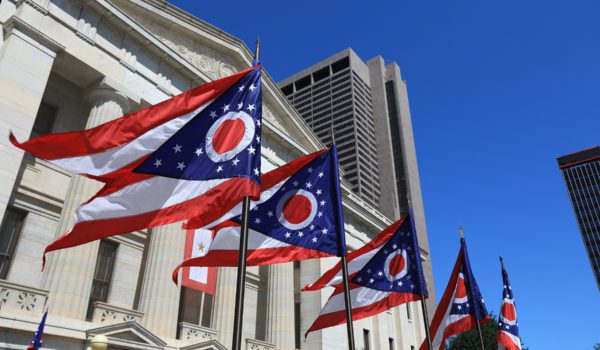On June 17, 2021, President Joe Biden and Ohio Governor Mike DeWine recognized Juneteenth as a national and state holiday. President Biden signed Senate Bill 475 officially recognizing “Juneteenth National Independence Day” as a national holiday. Quickly following suit, Gov. DeWine issued a statement recognizing Juneteenth as a state holiday. To be celebrated on June 19, Juneteenth commemorates the 1865 anniversary of the Union army arriving in Galveston, Texas, and enforcing the edicts of the 1862 Emancipation Proclamation, effectively marking the end of slavery in the United States.
While these proclamations establish Juneteenth as a federal and state holiday, they do not require political subdivisions in Ohio to also recognize Juneteenth as a paid holiday, unless the subdivision has a specific provision in its policies or in a collective bargaining agreement to the contrary. Under Ohio Revised Code § 124.19, state holidays include 10 enumerated days (New Year’s Day, Martin Luther King Day, Washington-Lincoln [commonly known as Presidents’] Day, Memorial Day, Independence Day, Labor Day, Columbus Day, Veterans Day, Thanksgiving, and Christmas). It also includes “any day appointed and recommended by the governor of this state or the president of the United States.” Because President Biden and Gov. DeWine recommended Juneteenth as a holiday, Ohio law now requires that state employees receive Juneteenth as a paid holiday.
The same is not true, however, for Ohio’s political subdivisions. Ohio law specifically names the holidays that political subdivisions must recognize, depending on the governmental entity involved. Below are the holidays that certain political subdivisions in Ohio must recognize. It is important to remember that political subdivisions, through their policies or collective bargaining, may recognize additional holidays.
- Townships: Under R.C. 511.10, townships must recognize New Year’s Day, Martin Luther King Day, Washington-Lincoln [a.k.a. Presidents’] Day, Memorial Day, Independence Day, Labor Day, Columbus Day, Veterans Day, Thanksgiving, and Christmas as paid holidays
- Counties: Under R.C. 325.19, counties must recognize New Year’s Day, Martin Luther King Day, Washington-Lincoln [a.k.a. Presidents’] Day, Memorial Day, Independence Day, Labor Day, Columbus Day, Veterans Day, Thanksgiving, and Christmas, as paid holidays.
- School Districts: Under R.C. 3319.087, public school districts must provide paid holidays to nonteaching employees based on their duration of employment for the year.
- 11 or 12 month employment: New Year’s Day, Martin Luther King Day, Memorial Day, Independence Day, Labor Day, Thanksgiving, and Christmas.
- Nine or 10 month employment: New Year’s Day, Martin Luther King Day, Memorial Day, Labor Day, Thanksgiving, and Christmas.
- Less than 9 months: All the holidays for nonteaching employees referenced above that occur during the employee’s time of employment.
Ohio law sets the minimum paid holidays that must be recognized for townships, counties, and school districts. However, there is no similar provision for Ohio’s municipalities. Since these minimum holidays are set by Ohio law, they may be modified by the Ohio legislature. Gov. DeWine, in his statement recognizing Juneteenth as an Ohio holiday, invited legislative efforts to recognize Juneteenth in the Ohio Revised Code. Such efforts may include expanding the minimum holidays that Ohio’s political subdivisions must recognize.
Political subdivisions should review their policies and collective bargaining agreements to determine if they are required to recognize holidays in addition to the minimum paid holidays discussed above.
If you have any questions about the impact of state and federal recognition of Juneteenth, please contact Scott Phillips, Jack Hemenway, Dr. Christopher Thomas, or any member of our Government Services practice group.

